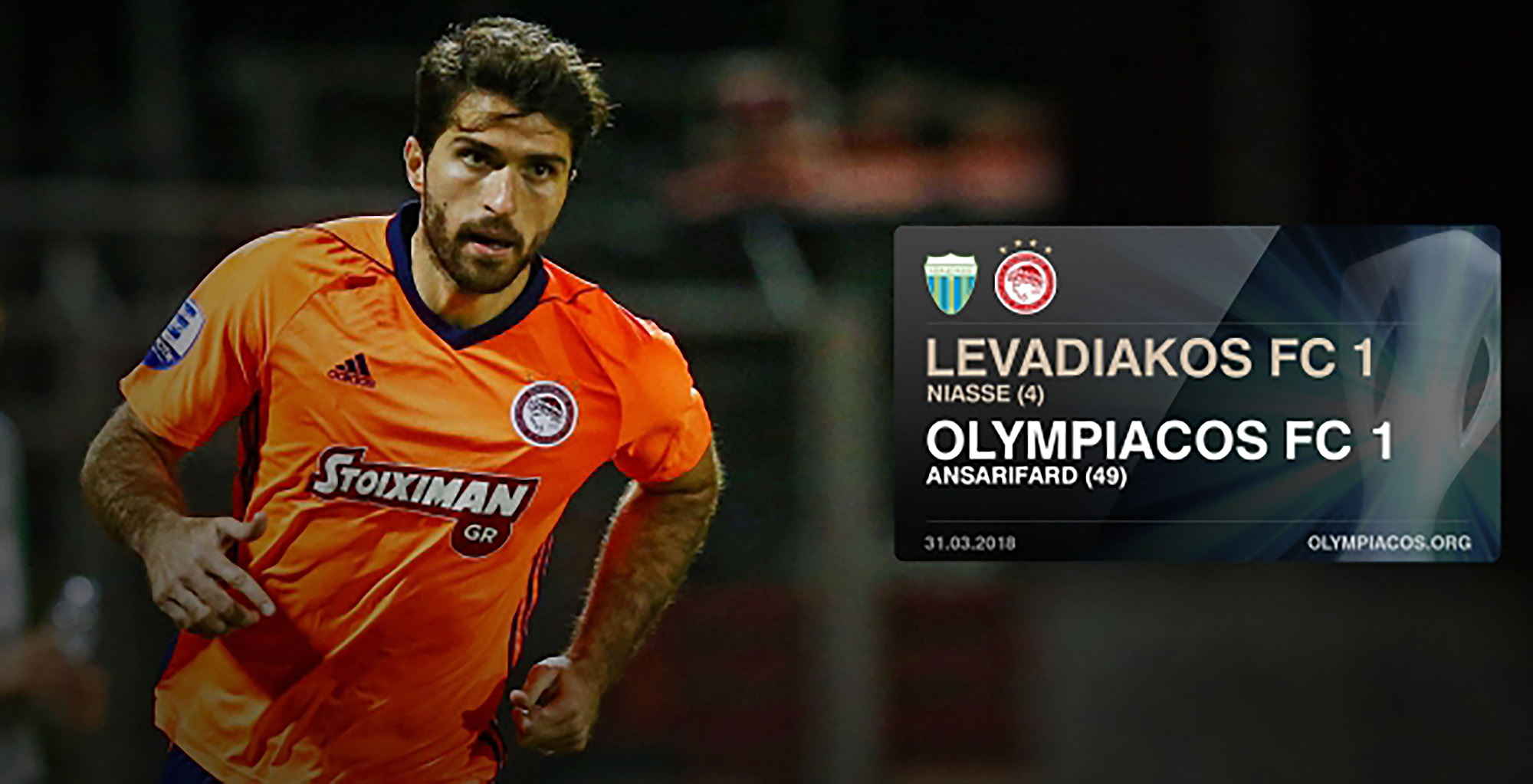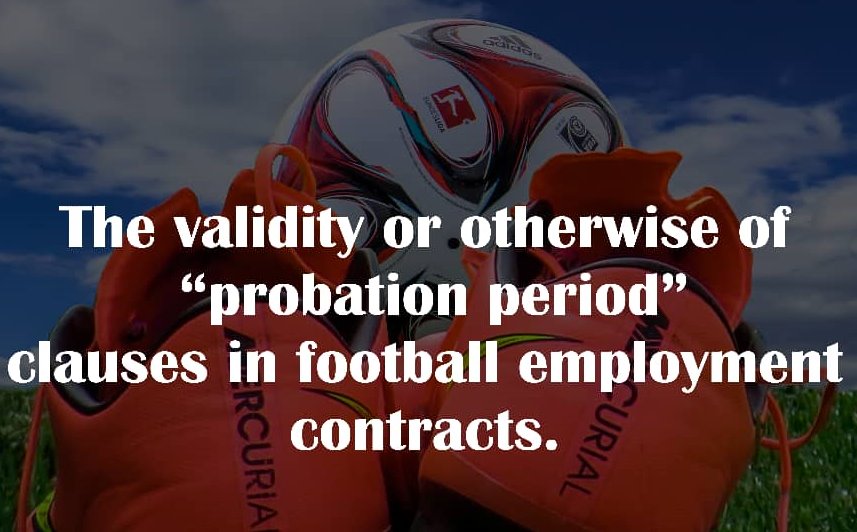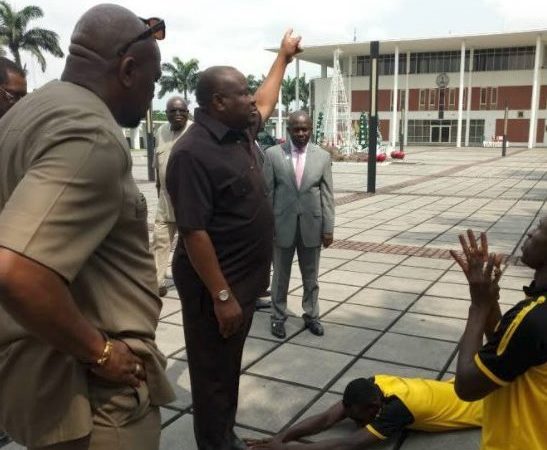
Poor Footballer Performance; Are Banishment & Fines Legal?
A Case Study of Olympiacos Football Club
On Saturday 31st March 2018, Olympiacos FC of Greece played to a 1-1 draw against a mid-table club, i.e Levadiakos. This result left the club in third position in the league standings.
The President of the club was irked by the result and a perceived accumulated “poor performances”. Consequently, he fined the first-team players the sum of £350,000 and also banished them from the club until the beginning of the next football season. What shall be considered in this article is whether (by the regulations of FIFA and the jurisprudence of sports dispute resolution bodies) a club can fine and/or banish its player for “poor performance(s)”.
The two sanctions of the president of the club will be treated as follows”:
I. Fines, Deductions or Withholding of Salaries:
The question that comes to the mind is, can a club fine, deduct from, or withhold the salary of a footballer if the level of his performance is not at the same level as that of when the club signed him? Will the club not be justified since they are not getting a commensurate return for the salary the player is being paid?
By the jurisprudence of the Dispute Resolution Chamber (DRC) of FIFA and the Court of Arbitration for Sports (CAS), an employer cannot deduct from, or refuse to pay the salary of a professional footballer based on low performance(s). The imposition of fines on a player based on his low performance is also not valid.
In the DRC decision of 27 April 2006, a player and a club signed a one-year employment contract. At the expiration of the contract, the player wrote to the club that it had breached the employment contract due to non-payment of USD 32,750 as appearance fees. When the club failed to respond, the player lodged a formal complaint against the club at FIFA.
There, the club stated that it had paid all monies that it was obliged to pay in accordance with the contract and furnished a list of payments to support its claim. It was revealed that the club had imposed fines on the player based on his low performance during the subsistence of the contract. The player asked the DRC to order the club to pay USD 42,750. In arriving at its decision in favour of the player, the DRC outlined that low performance, in general, cannot be considered a reason for the club to reduce payments to the player, because it is unilaterally determined by the club and based on pure subjective criteria. The DRC concluded that the imposition of fines and deduction from monies payable to the player by the club cannot be accepted.
Furthermore, it is worthy to note that even if there is a clause in the contract of the player that provides that the player will only be paid the whole or a percentage of his salary per time, only if he plays a particular number of matches, such a clause will be regarded by the DRC as arbitrary and unacceptable since it is at the discretion of the club to decide how many matches the player plays. It would have been legal if the club agrees an amount as his basic salary, and states a bonus payable only if the player plays a particular number of matches; in which case the player cannot enforce the payment of such bonuses if he did not play the required number of matches.
II. Banishment:
Also, by the decisions of the DRC and CAS, a player cannot be banished from the team solely on the ground of poor performance. In the case of Olympiacos FC which is the case study of this article, it does not matter (in my opinion) that it was all the first team players that were banished from the team. If any or all of them were to take legal action, he/they would be successful.
Based on previous FIFA decisions, although a player is not entitled to be selected for matches, he is entitled to partake in training sessions and other activities of the club. This is logical and reasonable because if a player is banished from the club’s training sessions and/or other activities because of poor performance, how would he have an opportunity to stake a claim for being selected in subsequent matches, since a coach usually makes an assessment of his players and selections at training sessions.
In the DRC decision of 12 December 2013 (No. 12132884), it was reiterated that among a player’s fundamental rights under an employment contract, is not only his right to a timely payment of his remuneration, but also his right to access training and to be given the possibility to compete with his fellow team mates in the team’s official matches. It was held that banishment constitutes a serious breach of contract.
However, it is worthy to note that there would be no breach of contract if a player is excluded from training with the first team, and asked to train with the second team; except there is a clause in his contract with the club which forbids it. See the DRC decision of 8 June 2007 (No. 67229) and Dutch KNVB Arbitration Tribunal 29 August 2008, (No.1214.)
So what can a football club do in such a circumstance?
You may begin to wonder, does that mean a football club is helpless and cannot take any action? The answer is no. There are steps the club can take, which include:
a. Non-selection: Generally, a football player is not entitled to be selected for the matches of the club as long as the player is regularly paid his salary and the club respects all other contractual obligations. Thus, if the level of performances of a player drops, the club may refuse to select him for the club’s matches; provided such a player does not have a clause in his contract that guarantees him being selected in the first team of the club.
In a DRC decision of 17 August 2006(No. 86154), the contract included a clause that the player was guaranteed to stay in the first team regardless of his performances. The DRC held that even if the performance of a player had not been at the expected high level, the club had, by explicitly putting this clause in the employment contract, undertaken the commitment to allow the player into its first team.
b. Transfer listing: The player’s club may make the player available in the transfer market. In which case, another club may pay a transfer fee to buy out the contract of the “underperforming” player; if the player agrees to a transfer to the new club.
c. Mutual termination: The club and the player may attempt amicable settlement, by discussing and agreeing at a mutual termination of the contract between the club and the player. This is usually achieved upon payment of compensation to the player by the club. In such a circumstance, the player becomes a free agent and may sign for another club at no transfer fee.
d. Unilateral termination: This is the least-advised action to take. However, in extreme circumstances where no other club has shown interest in the services of the player and an attempt at mutual termination has failed, the club may unilaterally terminate the contract of the player but pay up all salaries, bonuses and any other entitlements of the whole duration of the contract of the player. This is however not advisable as the club may still be subject to a claim from the player, especially where there is a dispute as to the amount of entitlements paid.
Conclusively, it is apparent that based on the legal principles of the DRC and CAS, the President of Olympiacos Football club acted illegally, and the club may be liable to pay their full salaries and compensation if an action is explored by the players concerned.
Written by: ‘Tosin Akinyemi, Esq.



